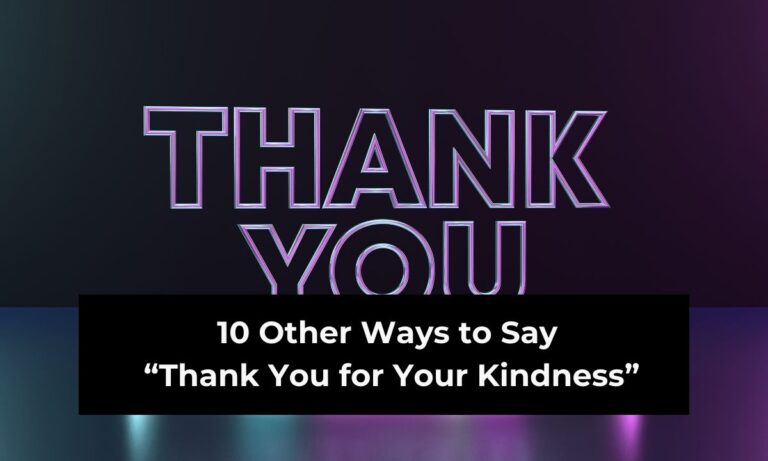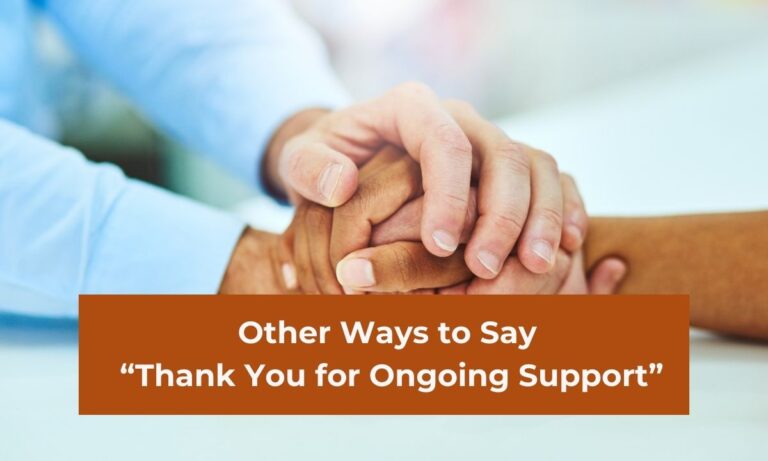Have you ever been in a conversation where someone thanked you, and you wanted to respond with something warmer than a simple “you’re welcome”? While the phrase “the pleasure is all mine” is a classic and polite choice, it can sometimes feel formal, rehearsed, or overused. You might want a response that feels more personal, genuine, or aligned with the situation you’re in.
Think about it: words have a powerful way of shaping how others feel about an interaction. If you’re at work, talking to a friend, or meeting someone new, the way you acknowledge gratitude leaves a lasting impression. Using the right phrase can make you sound approachable, confident, and thoughtful all at once. That’s why it’s worth learning a variety of alternatives you can keep ready for different situations.
In this article, you’ll discover twelve creative and meaningful ways to say “the pleasure is all mine.” Each alternative has its own tone—some are more professional, others are more casual, and a few are especially heartfelt. You’ll find practical examples, so you can picture exactly how to use these phrases in real conversations.

By the end, you’ll not only expand your vocabulary but also feel more confident in choosing the right words for the right moment. Whether you want to sound warm, respectful, or sincerely appreciative, you’ll walk away with phrases that feel natural and authentic. Let’s dive into the twelve other ways you can say “the pleasure is all mine.”
1. “It Was My Pleasure”
This phrase is a close cousin of “the pleasure is all mine,” but it feels slightly more casual and natural. When someone thanks you, saying “It was my pleasure” communicates that you genuinely enjoyed helping them.
For example, imagine a coworker thanks you for staying late to assist with a project. Instead of sounding stiff, this reply shows that you willingly gave your time and actually valued the experience. It makes your response feel heartfelt without being overly formal.
This phrase also works beautifully in customer service settings. If a client thanks you for your support, saying “It was my pleasure” emphasizes that you see helping them as part of what you enjoy doing, not a burden. It’s short, warm, and professional.
Use this phrase when you want to balance kindness with professionalism. It conveys respect while sounding approachable and positive.
2. “I’m Happy I Could Help”
This alternative puts the focus on your genuine willingness to assist. Instead of highlighting your own pleasure, it highlights your happiness in being useful to the other person.
Picture this: a friend thanks you for helping them move into their new apartment. Saying “I’m happy I could help” shows that your joy came from making their life easier. It shifts the spotlight onto their gratitude while still reflecting your sincerity.
This phrase works equally well in professional or personal contexts. At work, it softens interactions by making you sound cooperative and team-oriented. With friends, it communicates warmth and loyalty.
The phrase is especially effective when you want to stress your reliability. It doesn’t just say you enjoyed the moment—it reinforces that you’re someone who shows up for others.
3. “Don’t Mention It”
Casual, lighthearted, and friendly, “Don’t mention it” is a great way to show that helping someone didn’t require much effort on your part. It takes the pressure off the other person, making them feel more comfortable about having asked for assistance.
Imagine a neighbor thanking you for watering their plants while they were away. A simple “Don’t mention it” assures them that it wasn’t an inconvenience at all.
This phrase shines in informal conversations, especially when you want to keep the tone easygoing. It also prevents the interaction from feeling overly formal or heavy.
However, keep in mind that it might sound too casual in highly professional or formal situations. Reserve this response for friendly or relaxed exchanges.
4. “Anytime”
Sometimes, you want to express not just appreciation for the moment, but also an open invitation to help again in the future. That’s where “Anytime” comes in.
This word is short but powerful. If a friend thanks you for driving them somewhere, saying “Anytime” tells them you’re more than willing to do it again. It creates a sense of trust and reliability.
In a professional setting, you could use it to strengthen relationships by showing that you’re approachable and supportive. A coworker who hears “Anytime” after thanking you will feel confident reaching out to you again.
What makes this phrase special is that it goes beyond a single moment. It communicates an ongoing willingness to help, making your interactions warmer and more genuine.
5. “Of Course”
Polite and straightforward, “Of course” is a versatile alternative that works in almost any situation. It’s a quick way of saying, “Naturally, I would do this for you.”
For instance, if a colleague thanks you for covering their shift, saying “Of course” emphasizes that it was a natural decision, not a favor you hesitated to give. It conveys a sense of ease and acceptance.
This phrase works well when you want to acknowledge gratitude without making it overly dramatic. It reassures the other person that their request wasn’t burdensome and that you were glad to help.
Because it’s so adaptable, “Of course” is one of those phrases you can rely on in both formal and informal conversations.
6. “I Was Glad to Do It”
If you want to show heartfelt sincerity, this phrase is an excellent choice. It emphasizes that you didn’t just do the task—you were glad to be part of it.
Imagine helping a friend prepare for a big presentation. When they thank you, saying “I was glad to do it” highlights both your support and your positive feelings about the experience.
This phrase carries warmth and authenticity, making it especially effective in personal relationships. It reassures the other person that you weren’t just being polite—you truly valued helping them.
At the same time, it works professionally when you want to show dedication and enthusiasm. It reflects both reliability and genuine goodwill.
7. “No Problem at All”
Casual and comforting, “No problem at all” tells the other person that their request wasn’t inconvenient. It reassures them that you helped out happily, without hesitation.
Think of a coworker thanking you for quickly answering their question. Saying “No problem at all” assures them that they didn’t take up your time or create stress. It keeps the tone easy and positive.
This phrase is especially useful when you want to put someone at ease. Sometimes people feel guilty about asking for help, and this reply gently removes that worry.
It’s best suited for informal or semi-professional conversations where you want to sound approachable and friendly.
8. “It’s Nothing”
This response is simple, but it carries a powerful message. “It’s nothing” suggests that your effort was so small that it’s hardly worth mentioning.
Imagine holding the door open for someone who thanks you. Saying “It’s nothing” lets them know it wasn’t a big deal at all, which keeps the interaction light and kind.
The phrase works well in casual settings, especially when you want to make the other person feel comfortable about your help. It removes any sense of obligation or debt.
However, it may not always be the best choice in professional settings, where it could sound dismissive. In personal interactions, though, it strikes the perfect balance of humility and friendliness.
9. “I’m Here for You”
This phrase goes beyond acknowledging gratitude—it reassures the other person of your ongoing support. Saying “I’m here for you” communicates loyalty, care, and availability.
If a close friend thanks you for listening to their struggles, this reply reminds them that your support doesn’t end with one conversation. It signals a deeper connection and reliability.
In professional contexts, it can also work well in mentoring or team settings, showing that you’re a dependable resource. Just be mindful of the context, as it may feel too personal in more formal relationships.
Overall, this phrase shines when you want to reinforce emotional support and trust.
10. “It’s Always a Joy”
For moments where you want to highlight genuine happiness, “It’s always a joy” is a beautiful alternative. It conveys enthusiasm and positivity in a way that feels heartfelt.
Picture a student thanking their teacher for guidance. Saying “It’s always a joy” reflects not only the willingness to help but also the delight in being part of their journey.
This phrase works particularly well when you want to add a touch of warmth and inspiration to your response. It’s less about formality and more about expressing genuine delight in the relationship.
Use it when you want your gratitude response to carry a little extra spark of positivity.
11. “Glad I Could Be There”
This phrase carries both sincerity and presence. It emphasizes that you value the moment of being able to show up for someone.
For example, if a family member thanks you for attending an important event, “Glad I could be there” makes them feel appreciated for including you, while also highlighting your willingness to support them.
It’s a thoughtful response that works especially well in personal settings, but it can also be adapted to professional environments where showing up is meaningful.
This phrase underscores both your reliability and your gratitude for being part of the experience.
12. “You’re Very Welcome”
Sometimes, the most powerful alternative is a polished version of the classic “you’re welcome.” By adding “very,” you emphasize the sincerity of your response.
If someone thanks you for going above and beyond, “You’re very welcome” adds an extra layer of warmth without sounding over the top. It shows that you genuinely appreciate their gratitude and want to return it with kindness.
This phrase works in virtually any setting—professional, personal, or casual—because it strikes the perfect balance between formality and friendliness. It’s timeless, respectful, and always appropriate.
Conclusion
Responding to gratitude isn’t just about words—it’s about connection. Each phrase you choose sends a subtle message about how you see the interaction and how much you value the other person. While “the pleasure is all mine” is a beautiful classic, it’s not the only way to express warmth and sincerity.
By exploring alternatives like “I’m happy I could help,” “Anytime,” or “It’s always a joy,” you expand your ability to connect in meaningful ways. These phrases allow you to adjust your tone depending on the setting—whether you’re at work, with friends, or supporting loved ones.
The next time someone thanks you, take a moment to choose a phrase that feels authentic to you and appropriate for the situation. The right response will not only make the other person feel appreciated but also leave a lasting impression of kindness and generosity.
FAQs
1. Is “the pleasure is all mine” too formal?
Yes, in casual settings it can sound overly formal. That’s why alternatives like “No problem at all” or “Anytime” work better for everyday conversations.
2. What’s the most professional alternative?
“It was my pleasure” and “Of course” are excellent choices in professional environments because they’re polite yet approachable.
3. Can I use these phrases in emails?
Absolutely. Phrases like “I’m happy I could help” or “You’re very welcome” work perfectly in written communication as well.
4. Which phrase is best for close friends?
For close relationships, phrases like “I’m here for you” or “Glad I could be there” carry more emotional depth.
5. How do I make my response feel genuine?
Choose a phrase that matches your actual feelings and the tone of the situation. Sincerity matters more than the exact words you use.





